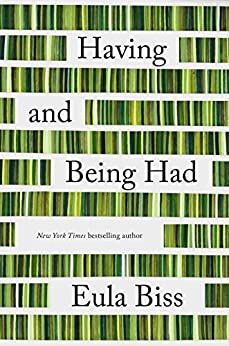More on this book
Community
Kindle Notes & Highlights
What is destroyed when we think of ourselves as consumers, Graeber suggests, is the possibility that we might be doing something productive outside of work.
“Judging wealthy people on the basis of their individual behaviors—do they work hard enough, do they consume reasonably enough, do they give back enough—distracts us from other kinds of questions about the morality of vastly unequal distributions of wealth,” she writes. We shouldn’t ask our rich to be good, in other words, we should ask our economic system to be better.
Credit is a form of optimism, Yuval Noah Harari suggests. It depends on the belief that the future will be more prosperous than the present.
Credit creates the illusion of equality, in that we can all buy the same things on credit, but we can’t all pay the debt back.
Miłosz, a poet, lived through the Nazi occupation of Warsaw and the Soviet Union’s postwar invasion of Poland. Miłosz didn’t want to leave the place where the language of his poetry was spoken. “Language,” he wrote, “is the only homeland.” And so he remained in Poland, full of ambivalence.
When he tried to regain his US citizenship after fourteen years in Russia, the FBI considered him too much of a security risk. What made him suspect was not his communist sympathies but, as his heavily redacted FBI file reveals, his “protests against alleged racial discrimination and inequality in America.” That was the threat to national security.
Uber drivers don’t know their employers or their fellow employees. They lack, among other forms of security, the security of working with people they know, and people who know them.
Some people choose their precarity—evidence that precarity is not just a condition of our time, but a response to it. The precariat includes people who have forgone stable employment and retirement savings for temp work and travel and an uncertain future. Their very existence is unsettling, suggesting, as it does, that there might be something worth more than security.
Along with affluence, there are liquid assets, and trickle-down economics, and the rising tides that float all boats. Why is water so often a metaphor for money? Perhaps because we like to believe that our economic system is naturally occurring, not man-made. Maybe the movement of money feels inevitable if you imagine it as water, with only blameless gravity participating in the accumulation of wealth.
Its veracity is less important than its influence, one of my colleagues once said of that essay. Meaning, the lies we want to believe tell us something about ourselves.
Flaubert: “Le pouvoir est essentiellement stupide.” Power is essentially stupid.


